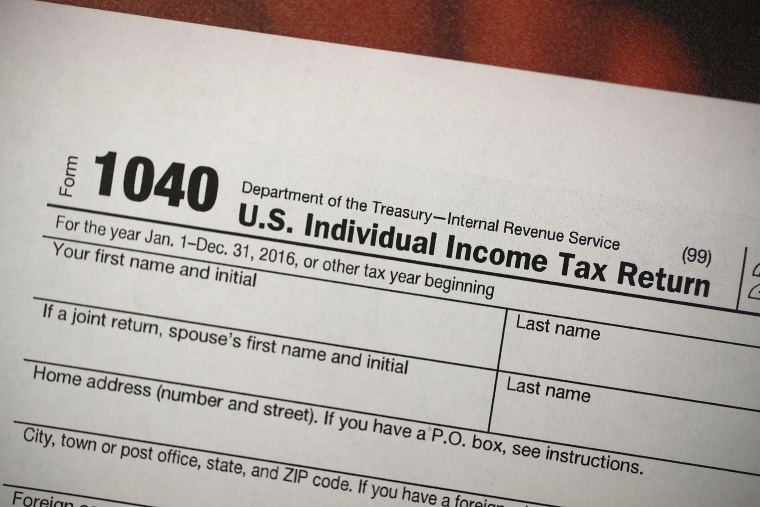Every year, Americans donate billions of dollars to charitable organizations and catch a break from the IRS in the form of a tax deduction. However, the new Republican tax law, which was signed by President Donald Trump last month, may lower Americans’ incentives to donate in 2018 and beyond.

The plan, which will mostly take effect this month, includes several provisions — such as the doubling of both the standard deduction and the estate tax exemption — that will reduce economic incentives to make donations to nonprofit organizations.
Tim Delaney, CEO of the National Council of Nonprofits, characterized several aspects of the plan as “disastrous” for the sector as a whole and cited estimates from the Tax Policy Center that the plan could result in $13 billion in lost revenue for nonprofits and more than 220,000 lost jobs.
Many LGBTQ groups are registered with the IRS as 501(c)(3) organizations, meaning donations to these nonprofits are tax deductible. And while the new bill raises concerns about the future of charitable giving, many LGBTQ groups since Trump's election have reported noticeable increases in giving, especially from larger donors, which could offset losses.
STANDARD DEDUCTION
The standard deduction will increase from $6,350 to $12,000 for individuals and $12,700 to $24,000 for couples. The Tax Policy Center estimates that up to 33 million more people will opt for the standard deduction in 2018 than did in 2017. By opting for the standard deduction, you can’t write off certain things, like charitable donations.

“If you no longer have the incentive to give, all the research and all the past history shows that people will continue to give to charitable causes, but they won’t give as much,” Delaney said. “If you give $500 a year to local food bank or domestic violence center … you may say, ‘These causes are really important to me, but I only want to give $400, because I’m not getting any recognition for what I’m doing for my local community.”
Elizabeth Koke, creative director at Housing Works, a nonprofit serving individuals with HIV/AIDS in New York City, said her organization’s most common contributions are tax-deductible donations to the organization’s thrift stories.
“Every time someone donates clothes or makes a contribution, all that money goes to the services we provide, [including] job training, over 200 units of supportive housing for folks living with HIV, outreach programs and harm reduction programs, [and a] drop-in center for homeless LGBTQ youth,” Koke explained, adding Housing Works’ programs serve thousands of New Yorkers each year.

The doubling of the standard deduction, coupled with other provisions, such as the capping of state and local tax deductions at $10,000, according to Delaney, will “create great pain for individuals across America who depend on nonprofits.”
Delaney stressed that his organization lobbied for a “universal deduction for charitable contributions,” which he said would have preserved incentives for individuals to maintain their charitable giving. But, he added, “Congress ignored our pleas.”
A recent report by the LGBTQ think tank Movement Advancement Project found 39 of the leading LGBTQ organizations in the U.S. brought in $230 million dollars in revenue 2016, with more than 80 percent of the money going to 501(c)(3) organizations.
Individual contributions accounted for 35 percent of those organizations’ revenue, and the vast majority of individual donors (94 percent) were small donors who gave less than $1,000. These small donors are the ones who would most likely be disincentivized to donate by the doubling of the standard deduction, according to Delaney.
ESTATE TAX
The new tax plan doubles the exemption for the estate tax, permitting individuals to pass on $11 million and couples to pass on $22 million without having to pay the tax.
The estate tax “has encouraged individuals to seek guidance on how they can give back to their communities to lessen the impact of the tax,” Delaney explained. “By taking that incentive away, there will be fewer foundations created, fewer gifts to the community.”
Delaney said the doubling of the estate tax exemption will result in the wealthiest individuals profiting, and “society at large” losing out.
Foundations and bequests, according to the Movement Advancement Project report, made up a total of 24 percent of LGBTQ organizations’ revenue in 2016.
CORPORATE TAXES
Corporate taxes have been slashed from 35 percent to 21 percent under the GOP tax plan. However, Delaney said he does not believe an increase in corporate income will translate into an increase in corporate support for nonprofits.
“Corporations have always enjoyed a tax break for charitable contributions, and that remains in place,” Delaney said. “But when you look at overall giving to 501(c)(3)s and look overall at our sources of revenue, corporations give [about] 1 percent of all resources to nonprofits.”
Corporate contributions accounted for 6 percent LGBTQ organizations’ revenue in 2016, according to the Movement Advancement Project report.
INDIVIDUAL MANDATE
The new tax plan scrapped the Affordable Care Act’s individual mandate, meaning individuals will no longer incur a tax penalty if they do not purchase health care. The Congressional Budget Office (CBO) estimated 13 million Americans would likely lose their health insurance as a result of this provision due to the resulting increases in insurance premiums.
“Repeal of the individual mandate impacts us both as employers and deliverers of service,” Delaney said of nonprofits. “[The CBO] is projecting that insurance premiums are going to skyrocket toward the end of 2018, and that's going to have humongous implications for nonprofits as employers. Are we going to be able to hire if the premiums skyrocket?”
On the service delivery side, Delaney speculated that a loss of health insurance will mean more people will find themselves in need and turn to nonprofits for help.
Koke said that such changes to the health care system will “definitely impact the folks who are most at risk and who are most vulnerable.”
“Our services aid those folks who are struggling with addiction or who are not stably housed. We always try to fill in the gaps there. There is always a need, and there will more of a need for supportive services,” she said.
THE TRUMP EFFECT
While the GOP tax plan could have a negative impact on donations to LGBTQ organizations, leaders of several LGBTQ nonprofits say there’s a counterbalance that may offset some of those losses: President Donald Trump.
Several organizations that have opposed the Trump administration on high-profile issues, such as the proposed transgender military ban, have seen funders step forward in support of their work.

Matt Thorn, executive director of LGBTQ military advocacy group OutServe-SLDN, a nonprofit 501(c)(3) that has been fighting the military ban, said prior to 2017, tax incentives “were the No. 1 driving force” of donors. Now, however, he’s noticed a shift.
“This year, in this climate, a lot of it has to do with the work we are doing,” he told NBC News. “People are really generating their gifts based on the causes.”
He said the policies of the Trump administration have “demonstrated they are a threat to the success that we have built under President Obama and even G.W. Bush.”
“I think that it’s been a huge wake-up call that we can’t really rest on our laurels and our successes,” Thorn added.
Ruth McFarlane, director of development for the National Center for Lesbian Rights (NCLR), a nonprofit 501(c)(3) organization that has opposed the Trump administration on several issues, including the transgender military ban and changes to the Affordable Care Act, said many donors — new and existing — have stepped up.
“Numerous donors told us they were inspired by our successes in our ongoing work to stop Trump’s transgender military ban and that they view supporting legal advocacy as a top priority during this administration,” McFarlane explained. “In addition to securing new donors, many longtime supporters increased their giving this year to support our litigation work under an administration that has repeatedly demonstrated its hostility toward the LGBTQ community"
Regarding any additional donations made because of Trump’s election, Delaney said he could not predict what, if any, impact these might have on nonprofit revenues in the long term. However, given the sweeping changes to the federal tax code, which will cascade down to impact state and local tax laws as well, he warned that the full consequences for nonprofits may take years to fully grasp.
